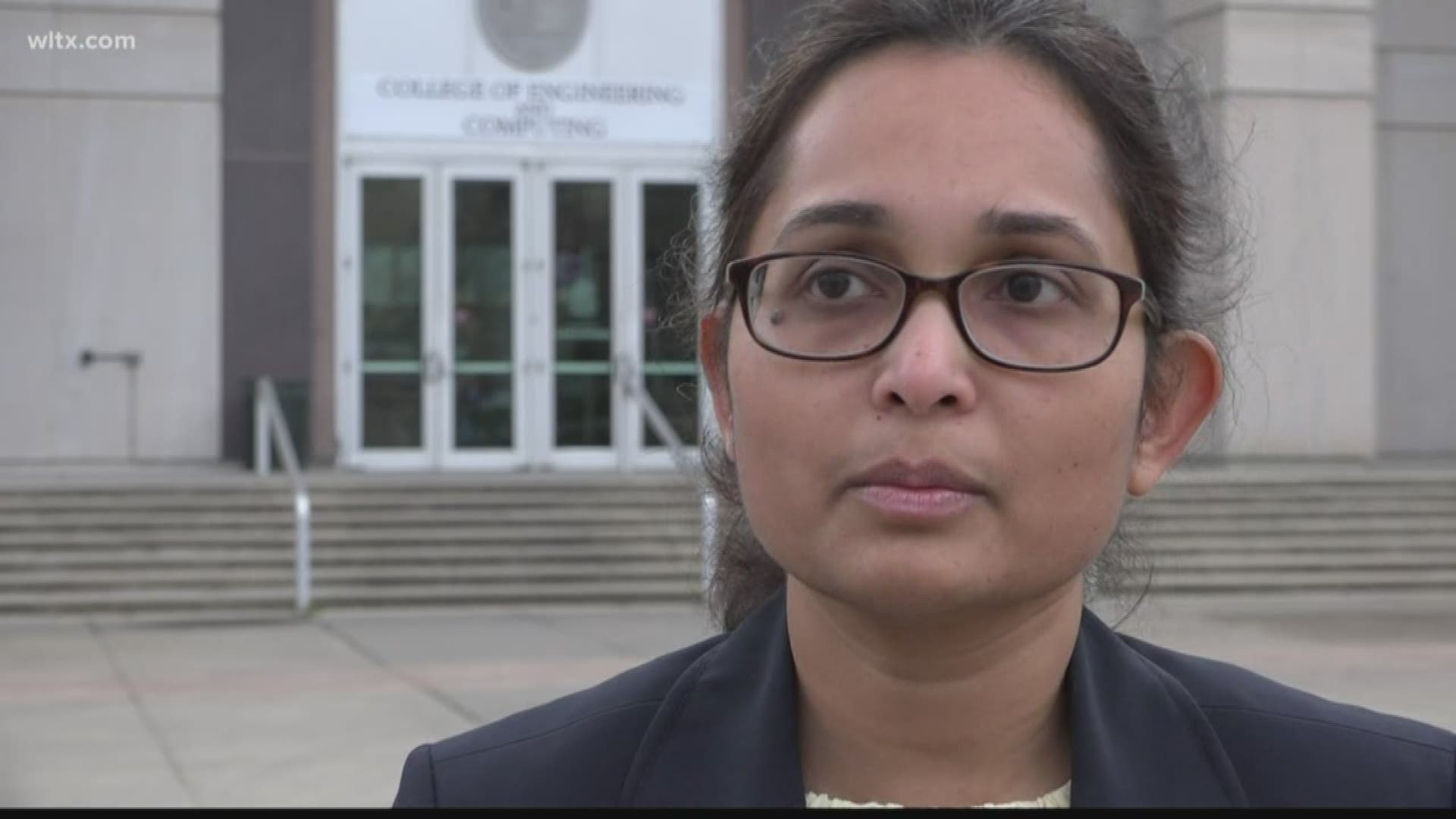COLUMBIA, S.C. — China now says they're dealing with 28,000 confirmed cases of the Wuhan coronavirus. The death toll is nearing 600.
Now, professors at the University of South Carolina are teaming up to better understand the virus. They're trying to figure out how the disease spreads and what can be done to stop it.
News 19 toured the lab Wednesday in the Swearingen Engineering Center at USC to get an up close look at the equipment.
Dr. Shamia Hoque, an Assistant Professor and Environmental Engineer at USC, is partnering with other researchers to create simulation models to figure out how the Coronavirus travels.
Specifically, she's investigating how we can better design every day places like train stations, hospitals and airports to prevent the spread of infectious diseases.
"If someone leaves the airport, enters the train then gets home, and he or she is not detected, what happened when he or she was on the train?" said Hoque. "If it was released, where did it go? How did it travel? If it lands on a chair, for example, how long will it survive on that surface?"
She's interested in looking at every nook and crannie in these crowded spaces. She wants to know how the disease moves around and what we can do to stop it in its tracks so more people aren't exposed.
"My focus would be looking at the environmental factors itself," said Hoque. "So within the train, what the air flow was, what the humidity was, what the temperature was and figure out how that would influence the persistence, accumulation and transfer of it."
Dr. Hoque isn't working alone.
This is an interdisciplinary study. It includes her colleagues from Ohio University and USC who work with the railroad and water treatment, and experts from the Public Health and Chemistry departments at USC.
"Our medical professionals are doing an excellent job of suggesting what we need to do, but I think as engineers, we need to come in and work with each other so we have a better idea of how we can proactively stop this so we don't keep reacting to these incidents," she said.
It's analysis on an evolving subject with the potential to make history.
"I like to think my research will have that effect, that less people will get infected, and to save lives," said Hoque. "Hopefully that's going to happen."

